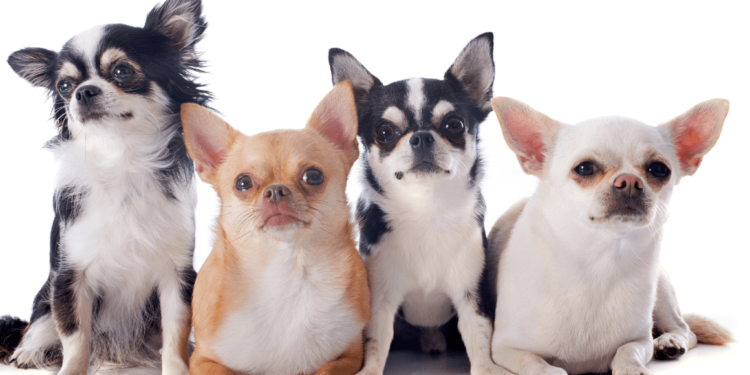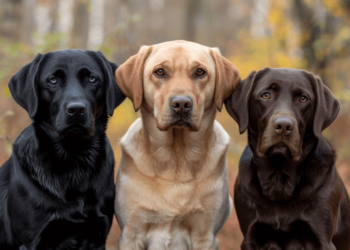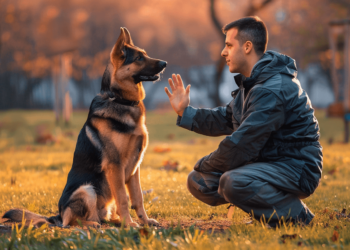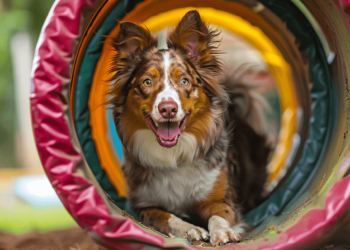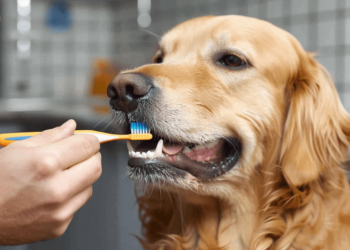Get to Know the Chihuahua
Are you considering a Chihuahua as your next pet? Dive into our comprehensive guide to learn about their traits, care needs, and why they make such delightful companions.
Ah, the Chihuahua! Small in size but big on personality, these tiny dynamos have trotted their way right into the hearts of dog lovers around the globe. If you’re envisioning a pint-sized pup with an outsized attitude, you’re right on the money. Famous for their vivacious spirit and expressive eyes, Chihuahuas are more than just a trendy accessory to the stars—they’re loyal, intelligent, and full of character.
Originally from Mexico, these miniature canines carry with them a rich history, steeped in tradition and culture, yet they’ve adapted seamlessly into various roles in modern households. Whether snuggling up in a cosy apartment or keeping watch in a bustling family home, Chihuahuas claim their turf with gusto.
In this guide, we’ll dive deep into the world of Chihuahuas, exploring everything from their aristocratic origins to the specific care they need to thrive. If you’re considering making a Chihuahua your new best friend, or simply curious about what makes these pint-sized pets tick, you’re in for a treat. Let’s get to know the Chihuahua, a small breed with a big personality!
History and Origin
The story of the Chihuahua is as colorful and vibrant as the culture from which it hails
The story of the Chihuahua is as colorful and vibrant as the culture from which it hails. Tracing their pawprints back to ancient Mexico, these tiny treasures are believed to descend from the Techichi, a companion dog favored by the Toltec civilization as early as the 9th century. The Techichi were cherished not just for their companionship but also held spiritual significance, often depicted in ancient artifacts and believed to guide the souls of the deceased through the underworld.
Fast forward to the Spanish conquest of the Aztecs, the little Techichi continued to thrive, evolving under the influence of new breeds introduced by the European settlers. It wasn’t until the mid-19th century, in the Mexican state of Chihuahua, that the modern breed—as we know it today—started taking form. American visitors to the region were charmed by these spirited little dogs and began bringing them back to the United States.
The breed’s international appeal soared in the early 20th century, as Chihuahuas became a symbol of elegance and exoticism. Their fame was further cemented by the rich and famous, who often showcased them as the ultimate lapdog. The Chihuahua’s ability to adapt to various living conditions, coupled with their alertness and loyalty, made them not just popular pets but also symbols of a chic, cosmopolitan lifestyle.
In 1904, the Chihuahua was officially recognized by the American Kennel Club, marking a new chapter in their storied history. From their roots as revered companions of ancient civilizations to their status as beloved household pets, Chihuahuas have stood the test of time, thriving in hearts and homes around the world.
Physical Characteristics
When it comes to the Chihuahua, their diminutive stature is just the beginning of what makes these dogs so uniquely appealing.
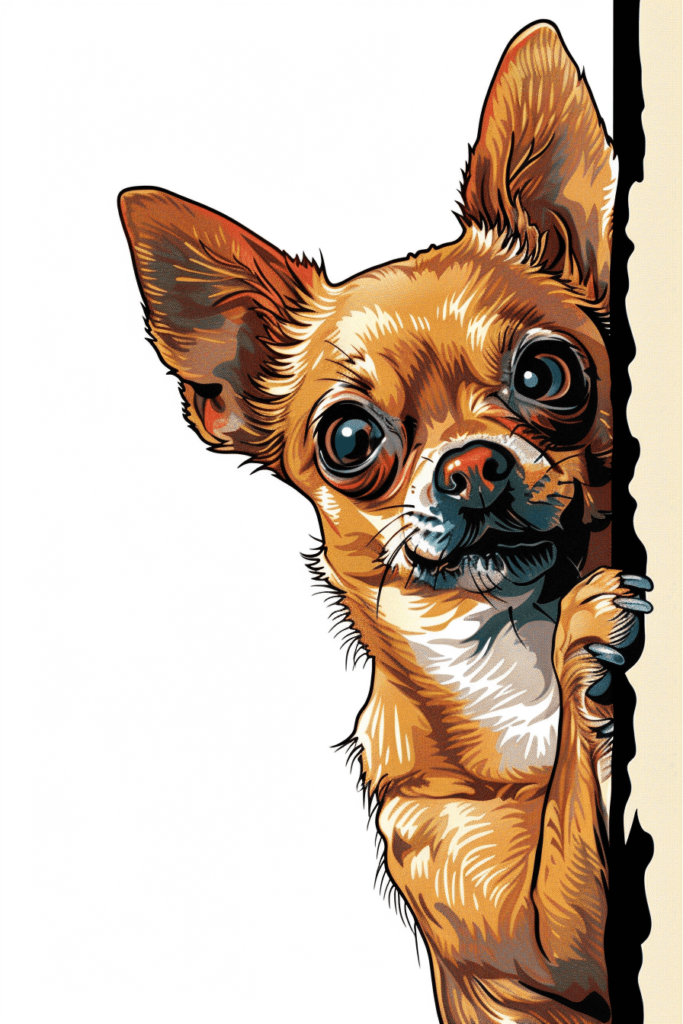
When it comes to the Chihuahua, their diminutive stature is just the beginning of what makes these dogs so uniquely appealing. Standing only about 5 to 8 inches at the shoulder when fully grown, Chihuahuas are famously known as one of the smallest dog breeds in the world. But don’t let their tiny size fool you; what they lack in size, they more than make up for in personality.
Weight and Build: Typically, a Chihuahua weighs in at a featherlight 3 to 6 pounds, though some might tip the scales a little more. Their petite frame is robust and compact, with a well-rounded rib cage and a slightly longer than tall body proportion, giving them a stout but dainty appearance.
Head and Face: One of the breed’s most distinctive features is its apple-shaped head, topped with large, luminous eyes that sparkle with expression and intelligence. Their ears are another point of pride—large, erect, and highly expressive, capable of conveying a wide range of emotions from curiosity to alertness.
Coat and Colors: Chihuahuas boast a variety of coat types, which can be broadly categorized into two: the smooth coat and the long coat. The smooth-coated Chihuahua has a soft, glossy coat that clings closely to the body, while the long-coated variety flaunts a softer, longer coat that may be straight or slightly wavy. As for colors, this breed offers a palette as diverse as any artist’s, ranging from solid shades like black, white, and fawn to splashy bi-colors and even tricolor combinations.
Tail: The tail is another expressive trait of the Chihuahua, carried either in a graceful curve or looped over the back with the tip just touching the back, adding to their elegant silhouette.
Despite their small size, Chihuahuas are surprisingly robust and agile, with a muscular build that belies their petite frame. Their dainty paws and nimble movements often give the appearance of tiptoeing, which coupled with their perky nature, makes them endlessly charming to watch.
Personality and Temperament
Chihuahuas may be tiny, but they pack a massive punch when it comes to their personality and temperament. Known for their charismatic and lively nature, these little dogs often behave as if they’re unaware of their small size, displaying confidence and even a bit of sassiness that can rival any large breed.
Loyal and Protective: First and foremost, Chihuahuas are fiercely loyal to their owners, often forming an intense bond with a single person whom they may choose as their favorite. This loyalty can sometimes translate into protective behavior. For instance, it’s not uncommon for a Chihuahua to bravely (and loudly) confront strangers, or even larger animals, in a misguided but heartwarming display of courage and protectiveness.

Alert and Intelligent: This breed is exceptionally alert, making them excellent watchdogs. They’re quick to respond to household events or unfamiliar sounds with a sharp bark. Their intelligence is evident in their curious and observant nature, always keen to be involved in their surroundings. A Chihuahua owner once shared a story of how her tiny companion managed to open a lightly latched gate using nothing but a persistent nose and paw coordination.
High Energy and Playful: Despite their small size, Chihuahuas have a lot of energy and enjoy engaging in playtime and activities. They are particularly fond of toys that challenge their intellect like puzzle feeders or small tug toys. They love being the center of attention and will often perform tricks or antics to keep their beloved humans entertained.
Sensitive and Temperamental: Chihuahuas can be quite sensitive to changes in their environment or routine, which can affect their emotional well-being. This sensitivity means they do best in a stable home environment with a predictable routine. Their temperament can range from cheeky and vivacious to shy and retiring, depending on their upbringing and socialization.
Affectionate Companions: Above all, Chihuahuas are affectionate creatures that thrive on companionship. They are known to follow their owners from room to room, snuggle under blankets, and curl up on laps at every opportunity. Their need for affection and closeness makes them wonderful pets for those who can provide a lot of attention and love.
Despite their many charms, Chihuahuas can be a challenge to train, owing to their strong will and natural cleverness. They respond best to positive reinforcement techniques such as treats or praises and require consistent, gentle guidance to shape their behavior.
Compatibility with Different Family Types
Chihuahuas are versatile when it comes to adapting to different household settings, but their compatibility with various family types can vary based on the environment, the presence of children, and the overall dynamics of the household.
Singles and Seniors: Chihuahuas are an excellent choice for singles and seniors, as they form strong, devoted bonds with their primary caregivers. They are small enough to manage easily and don’t require as much physical exercise as larger breeds, making them ideal for those who might find walking larger, more active dogs challenging. Their alert nature and loyalty also make them good companions who can provide a sense of security.
Families with Older Children: While Chihuahuas can thrive in a family setting, they are generally better suited to families with older children who understand how to interact with small dogs. Younger children might accidentally handle them too roughly or not respect their space, leading to potential nips or anxiety for the dog. Families with considerate older children can provide a loving and fun environment for a Chihuahua, where the dog feels safe and cherished.
Homes with Other Pets: Chihuahuas can get along well with other pets, especially if they have been raised together from a young age. However, due to their small size and sometimes jealous nature, careful introduction and supervision are advised, particularly with larger dogs that might accidentally injure a Chihuahua during play. They tend to do well with other Chihuahuas or small breeds, as they often enjoy the company of dogs their own size.
Active Couples or Individuals: For active couples or individuals, Chihuahuas can be a surprising fit. While they are lap dogs, they do enjoy walks and moderate exercise. They are also portable and can accompany their owners on outings or trips, which aligns well with a more active lifestyle. Plus, their adaptable nature makes them good companions for adventures as long as they are kept safe and comfortable.
Apartment Dwellers: Their small size makes Chihuahuas perfect for apartment living. They don’t require a yard and are usually satisfied with short walks and indoor play. Their watchdog tendencies mean they will alert you to anything amiss, which can be appreciated in a multi-unit environment.
Overall, Chihuahuas are flexible and can adapt to a variety of living situations, but they thrive best in environments where they can receive plenty of attention and care. Potential owners should consider their lifestyle and household composition to ensure a good match that will bring out the best in these spirited little companions.
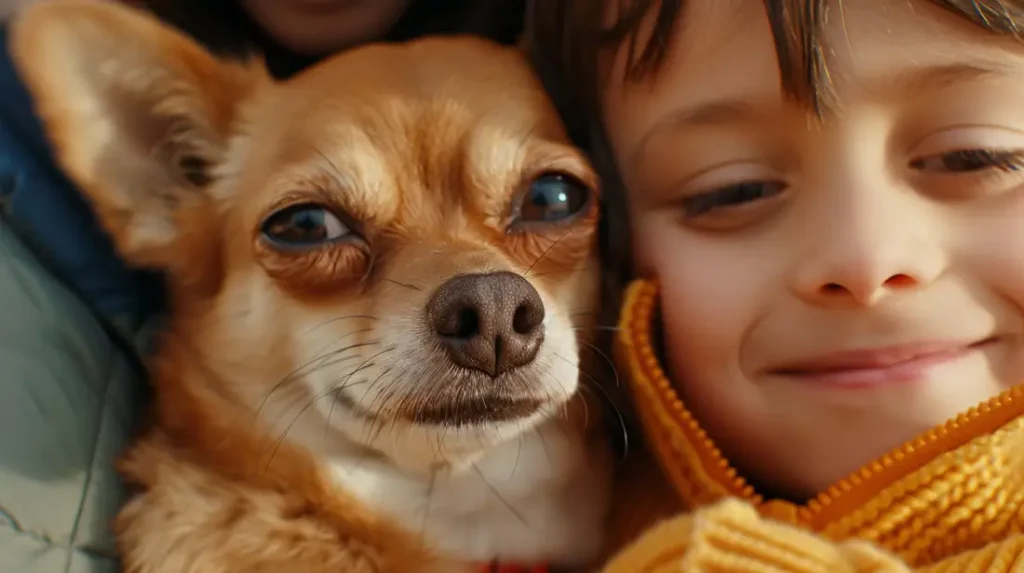
Health & Lifespan
Chihuahuas are among the longest-lived dog breeds, often reaching up to 15 years or more with proper care. However, like all breeds, they have their own set of health concerns that potential owners should be aware of. Understanding these can help in providing the best care for these tiny companions, ensuring a healthy, happy life.
Common Health Issues
- Dental Problems: Due to their small mouths, Chihuahuas are particularly prone to dental issues such as tooth decay and gum disease. Regular dental check-ups and cleanings are essential to prevent serious complications. For instance, a Chihuahua named Bella had to undergo dental surgery at age 6 due to neglected dental care, which underscored the importance of routine dental maintenance.
- Hypoglycemia: Especially in younger Chihuahuas, low blood sugar levels can be a concern. Symptoms include lethargy, shivering, and in severe cases, seizures. Feeding small, frequent meals and having glucose supplements on hand can help manage this condition.
- Patellar Luxation: A common issue in many small breeds, this condition involves the dislocation of the kneecap, which can cause pain and mobility issues. Regular vet check-ups can catch this early, and treatments range from lifestyle adjustments to surgery in severe cases.
- Hydrocephalus: Known as “water on the brain,” this condition is more common in breeds with dome-shaped heads, like the Chihuahua. It can lead to pressure on the brain and is noticeable by an abnormally large head during puppyhood, along with neurological symptoms.
Lifespan & Care
Chihuahuas can thrive into their late teens with the right care, which includes regular veterinary check-ups, a nutritious diet, and plenty of mental and physical stimulation. Their long lifespan often sees them outliving many larger dog breeds. For example, a Chihuahua named Meg lived to be 20 years old, thanks in part to meticulous care and a diet tailored to her needs throughout her life. To ensure the health and longevity of Chihuahuas, it’s crucial to adopt a comprehensive preventive care strategy. This involves more than just regular vet visits; it requires attention to their physical, nutritional, and emotional needs.
Here are some expanded preventive measures that can help keep these tiny companions at their healthiest:
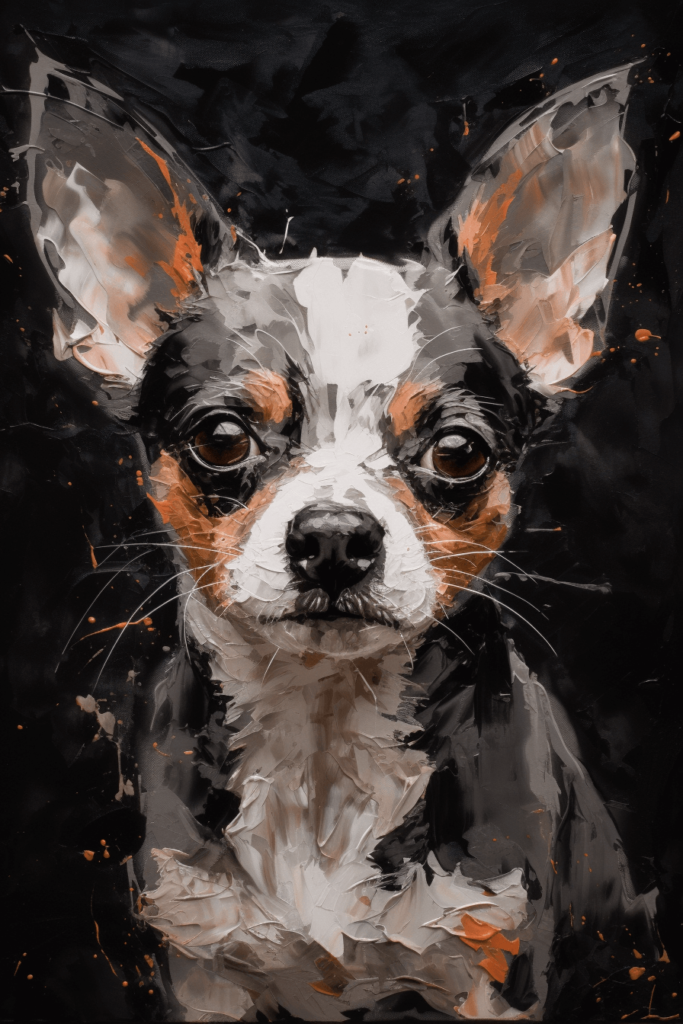
Nutritional Management:
- High-Quality Diet: Feed your Chihuahua high-quality dog food that’s specifically formulated for small breeds with high energy levels. The food should have a balance of proteins, carbohydrates, fats, vitamins, and minerals to support overall health.
- Proper Portion Control: Avoid overfeeding. Chihuahuas are prone to obesity, which can exacerbate health issues like diabetes and joint problems. Use a measuring cup and consult with your vet to understand the ideal daily calorie intake for your dog based on their age, weight, and activity level.
- Frequent Small Meals: Due to their risk for hypoglycaemia, especially in puppyhood, consider feeding them small, frequent meals throughout the day to keep their blood sugar levels stable.
Exercise and Physical Health:
- Regular, Moderate Exercise: Daily walks and play sessions help maintain a healthy weight and improve cardiovascular health. However, it’s important to tailor the length and intensity of the exercise to suit the small stature and energy levels of your Chihuahua.
- Avoid Rough Play: Protect them from rough play and jumps that can lead to injuries. Supervise interactions with larger dogs and children who may unintentionally play too rough with a small Chihuahua.
- Avoid Extreme Weather: Chihuahuas are sensitive to extreme temperatures. In cold weather, consider a sweater or coat, and in hot weather, try to walk them in the early morning or late evening.
- Monitor During Play: Always monitor your Chihuahua during play, especially if they are playing with larger dogs or small children, to prevent accidents.
Grooming needs: Shedding & Care
Smooth Coat Chihuahuas:
- Brushing: Brush your smooth coat Chihuahua once a week with a soft-bristle brush or grooming mitt to remove loose hair and distribute skin oils.
- Bathing: Bathe your Chihuahua once a month or as needed, using a gentle dog shampoo to avoid stripping their skin of essential oils.
Long Coat Chihuahuas:
- Brushing: Long coat Chihuahuas require more frequent brushing, at least two to three times a week, to prevent tangles and mats.
- Bathing: Regular bathing every three to four weeks is important, along with using a conditioner to keep their fur smooth and healthy.
General Grooming Tips:
- Nail Trimming: Regular nail trimming is essential to prevent discomfort and mobility issues. Aim to trim their nails every month.
- Ear Care: Check and clean their ears weekly to prevent wax build-up and infections, especially in long-coated varieties.
Mental and Emotional Health:
- Mental Stimulation: Engage your Chihuahua’s mind with puzzle toys, training sessions, and new tricks. This not only enhances their cognitive function but also strengthens your bond with them.
- Socialization: Early and ongoing socialization helps prevent anxiety and fearfulness. Introduce your Chihuahua to new people, pets, and environments in a controlled and positive manner to boost their confidence.
Routine Veterinary Care:
- Regular Check-Ups: Schedule regular veterinary check-ups to monitor their health. This includes vaccinations, parasite control (fleas, ticks, and worms), and dental care, which is crucial for preventing periodontal disease.
- Dental Hygiene: Brush your Chihuahua’s teeth regularly, ideally daily, with toothpaste formulated for dogs. Regular dental check-ups and cleanings by a professional are also essential to maintain oral health and prevent associated diseases.
Environmental Considerations:
- Weather Protection: Chihuahuas are sensitive to cold and hot weather due to their small size and short coat (particularly the smooth-coat variety). During cold months, consider using sweaters or coats for warmth. In hot weather, ensure they have access to shade and fresh water, and avoid walking them during the hottest parts of the day.
By implementing these preventive measures, you can significantly enhance your Chihuahua’s quality of life and potentially increase their lifespan. Each aspect of care is interconnected, contributing to a holistic approach that addresses the physical, emotional, and psychological needs of these uniquely spirited dogs.
Training & Socialization
Effective training and socialization are critical for Chihuahuas, ensuring they develop into well-adjusted pets. Here’s how you can tailor your approach to suit their intelligent yet sometimes wilful personalities, complete with practical examples sometimes wilful personalities, complete with practical examples.
Training Strategies
Positive Reinforcement:
- Reward-Based Training: Chihuahuas are particularly receptive to rewards. For example, when teaching a Chihuahua named Lola to sit, her owner would reward her immediately with a small treat and enthusiastic praise whenever she performed the action correctly. This consistent positive feedback helped Lola quickly associate sitting on command with pleasant outcomes.
- Consistency is Key: Use the same commands and rewards system consistently. A Chihuahua named Max learned to fetch using a mini tennis ball because his owner consistently used the command “fetch” and rewarded him with a treat and cuddle each time he brought back the ball.
Early and Often:
- Start Early: Begin training as soon as your Chihuahua arrives home. Basic commands like “sit,” “stay,” and “come” can be taught as early as eight weeks old.
- Short Sessions: Keep training sessions short. A Chihuahua puppy named Daisy learned basic commands in just 5-minute sessions spread throughout the day, keeping her engaged without overtaxing her attention span.
Socialization Techniques
Controlled Introductions:
- Gradual Exposure: Introduce your Chihuahua to new experiences gradually. For instance, when introducing a Chihuahua named Toby to new environments, his owner would first let him observe from a distance, then gradually move closer as Toby showed signs of comfort.
- Puppy Classes: Enrol in puppy classes where they can meet other dogs in a safe environment. For example, a Chihuahua named Bella became more outgoing after attending weekly puppy socialization classes, where she learned to interact with dogs of various sizes under supervision.
Ongoing Socialization:
- Regular Social Activities: Keep socializing your Chihuahua throughout its life. Taking your Chihuahua to pet-friendly events or regular visits to a dog park can help maintain their social skills. For instance, a Chihuahua named Charlie regularly visits the local coffee shop with his owner, where he meets different people and experiences new sights and sounds.
Dealing with Anxiety and Fear:
- Gradual Desensitization: If your Chihuahua is anxious or fearful, introduce them slowly to the source of their fear. A Chihuahua named Sophie was initially afraid of riding in cars. Her owner started by letting her sit in a parked car without starting it, gradually building up to short trips around the block combined with lots of praise and treats to build positive associations.
By integrating these training and socialization strategies into your routine, you can help your Chihuahua grow into a well-behaved and sociable companion. Remember, the key is patience, consistency, and positivity, ensuring that each new skill or friend is a positive experience for your tiny friend.
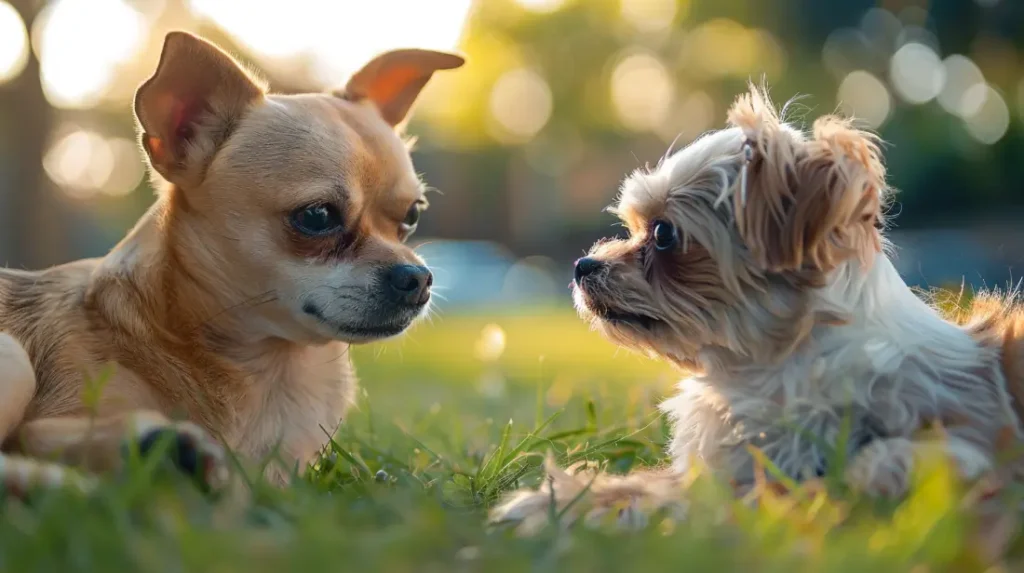
Debunking Popular Myths About the Breed
Myth: Chihuahuas are Naturally Aggressive
Truth: While Chihuahuas can be feisty or protective, they are not inherently aggressive. Their behavior is often a result of their environment, training, or lack thereof. With proper socialization and training, Chihuahuas can be exceptionally friendly and gentle. Sammy, a Chihuahua from a single-owner home, demonstrated his protective nature when his owner, Linda, fell ill. Despite his small size, Sammy stayed by her side, alerting other family members when Linda needed help by barking and refusing to leave her side until help arrived. This example shows how Chihuahuas can be protective and perceptive, qualities that are often mistaken for unnecessary aggression.
Myth: Chihuahuas are Not Good Family Pets
Truth: Contrary to the belief that Chihuahuas are not suitable for families, they can make excellent family members, especially in households with older children who know how to interact with small dogs. Their loyalty and affection make them great companions. Rosie, a Chihuahua adopted by the Parker family, lives happily with two children aged eight and eleven. Initially, there were concerns about how well she would adapt to a busy household. However, with proper introductions and supervised interactions, Rosie became an integral part of the family, often playing gently with the children and accompanying them during their indoor and outdoor activities. This scenario challenges the myth that Chihuahuas are not good with children.
Myth: Chihuahuas are Easy to Train Because of Their Size
Truth: Their small size does not necessarily make them easy to train. Chihuahuas are intelligent and can be stubborn, which means they might require consistent and patient training methods. They respond well to positive reinforcement and need mental stimulation to prevent boredom.
Myth: Chihuahuas are Just Lap Dogs and Don’t Require Much Exercise
Truth: While they do enjoy cuddles and can be less active than larger breeds, Chihuahuas still require regular exercise to maintain their health and happiness. They enjoy walks and playtime, which also help to keep their minds active and engaged. Max, a lively Chihuahua owned by a young couple, enjoys long walks and regular visits to the park. Contrary to the belief that Chihuahuas are just lap dogs, Max participates in agility training and often outruns larger breeds in his agility class, showing the high energy levels and exercise needs of Chihuahuas.
Frequently Asked Questions About Chihuahuas
Q1: How long do Chihuahuas typically live?Chihuahuas are known for their longevity and typically live between 12 to 20 years. With proper care, regular veterinary check-ups, and a healthy lifestyle, they can be loving companions for many years.
Q2: Are Chihuahuas good with children? Chihuahuas can be good with children, especially when raised with them. However, due to their small size and delicate build, they are better suited for families with older children who know how to handle them gently and respectfully.
Q3: Do Chihuahuas require a lot of exercise? While Chihuahuas are energetic, they don’t require as much exercise as larger breeds. Daily play sessions and short walks are typically sufficient to meet their physical needs.
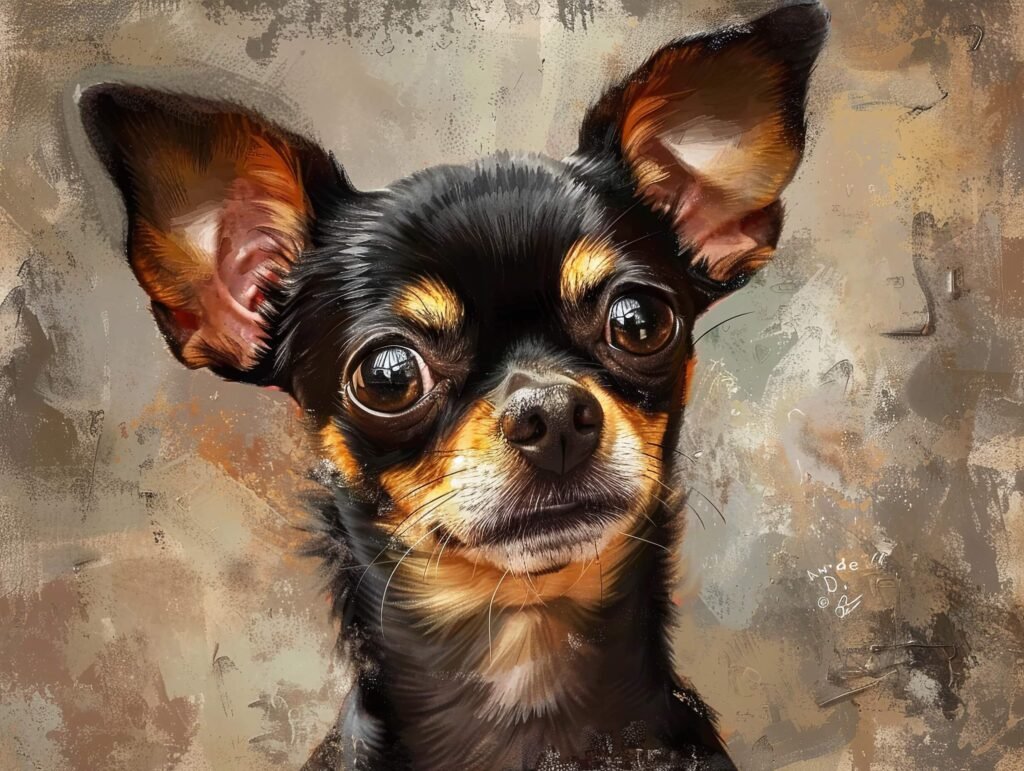
Q4: How much grooming do Chihuahuas need? Chihuahuas come in two coat types, smooth and long, which dictate their grooming needs. Smooth-coated Chihuahuas need occasional brushing and regular baths, while long-coated ones require more frequent brushing to prevent tangles and matting.
Q5: Are Chihuahuas easy to train? Chihuahuas are intelligent and can learn quickly, but they also have a strong-willed nature. This means they need consistent, positive training methods. They are not necessarily easier to train due to their size and may require a bit more patience.
Q6: Can Chihuahuas adapt to cold weather? Chihuahuas can be sensitive to cold due to their small size and short coat. It’s important to keep them warm with appropriate clothing, like sweaters or jackets, during colder months.
Q7: What health issues are Chihuahuas prone to? Some common health issues in Chihuahuas include dental problems, hypoglycaemia, patellar luxation, and heart issues. Regular veterinary care is crucial in preventing and managing these conditions.
Q8: Do Chihuahuas get along with other pets? Chihuahuas can get along with other pets, especially if they’re introduced slowly and properly socialized from a young age. However, their small size and jealous nature may sometimes require careful management around larger animals.
Q9: What should I feed my Chihuahua? It’s best to feed your Chihuahua high-quality dog food that’s formulated for small breeds. They should have a balanced diet that’s rich in nutrients, and their meals should be appropriately portioned to prevent obesity.
Q10: How do I know if a Chihuahua is right for me? Chihuahuas are ideal for owners who can provide lots of attention and care. They thrive in environments where they can be close to their owners. Consider your lifestyle, your home environment, and your ability to meet their emotional and physical needs before deciding.
Wrapping up
As we’ve trotted through the ins and outs of what it’s like to live with a Chihuahua, it’s clear that these tiny canines are as full of life as they are small in stature. From their storied history that dates back to ancient Mexico to their present-day status as beloved companions, Chihuahuas have proven that they’re more than just pint-sized pups with big personalities.
We’ve debunked the myth that these dogs are mere lap adornments, recognizing their need for regular exercise and mental stimulation. Their care requires a nuanced understanding of their dietary needs, grooming habits, and health concerns. When it comes to family life, Chihuahuas can be loyal and affectionate members, provided they’re paired with older children and owners who understand how to respect their boundaries.
Training a Chihuahua takes patience and consistency, counter to the myth that their small size makes them easy to train. They can be as stubborn as they are charming, but with the right approach, they learn quickly and are eager to please.
Before welcoming a Chihuahua into your life, consider whether their vivacious spirit and specific care requirements align with your lifestyle. These companions ask for your time, attention, and love, offering in return their unwavering loyalty and an abundance of affection.
If you’re looking for a small dog with a big heart, who will eagerly partake in your daily life and shower you with attention, then a Chihuahua might just be the perfect fit for your family. But remember, this breed thrives on companionship, so they’re best suited to homes where they can enjoy plenty of interaction and love.
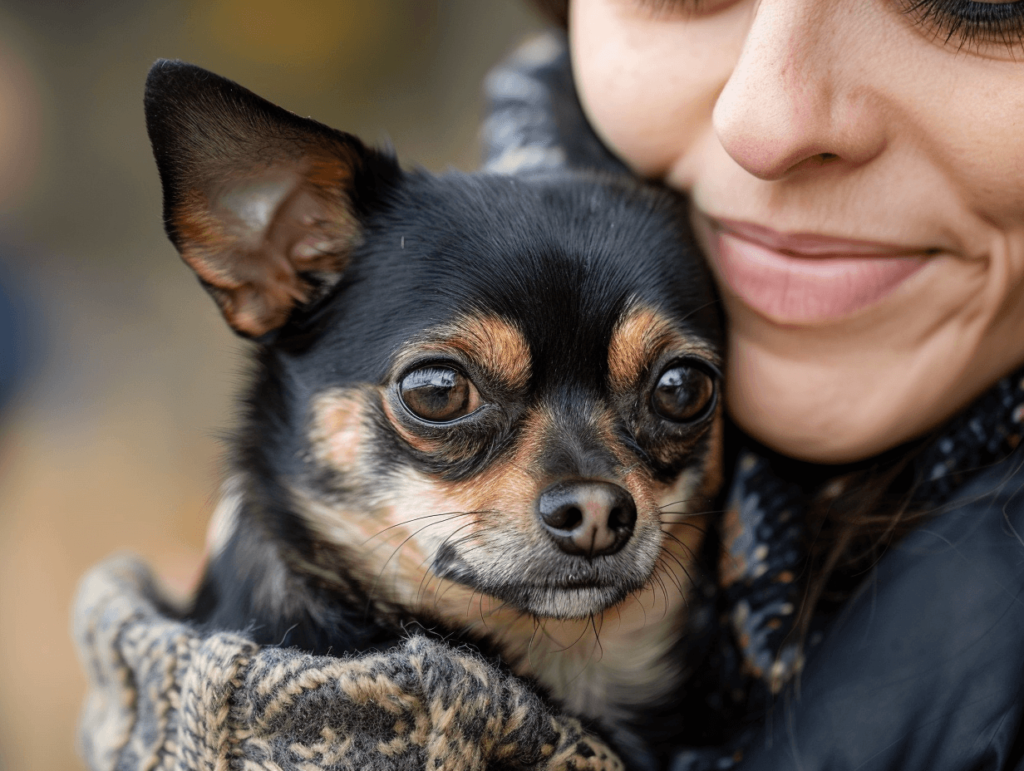
Are you ready for the rewarding challenge and joy of having a Chihuahua by your side? If so, prepare for a unique adventure and the unconditional love that only a Chihuahua can offer.
